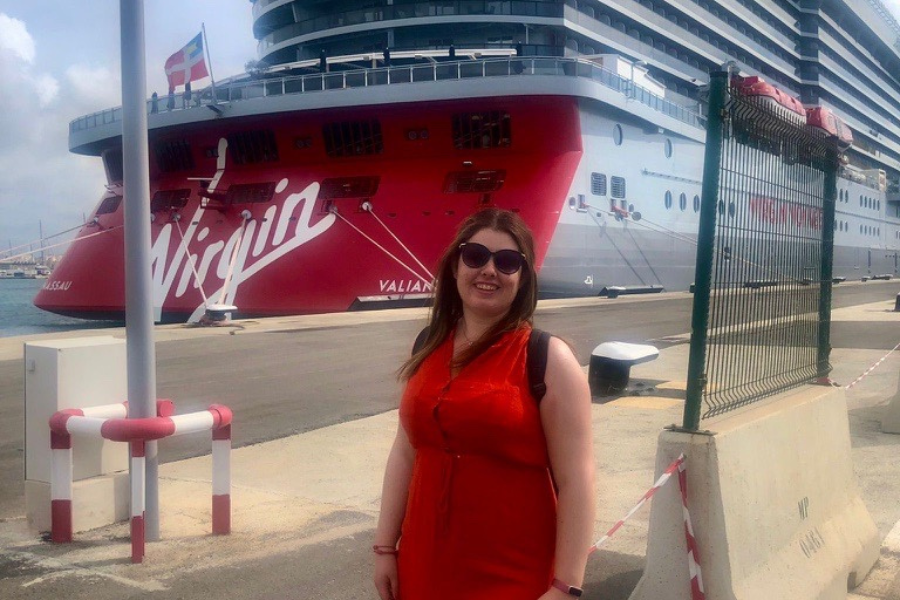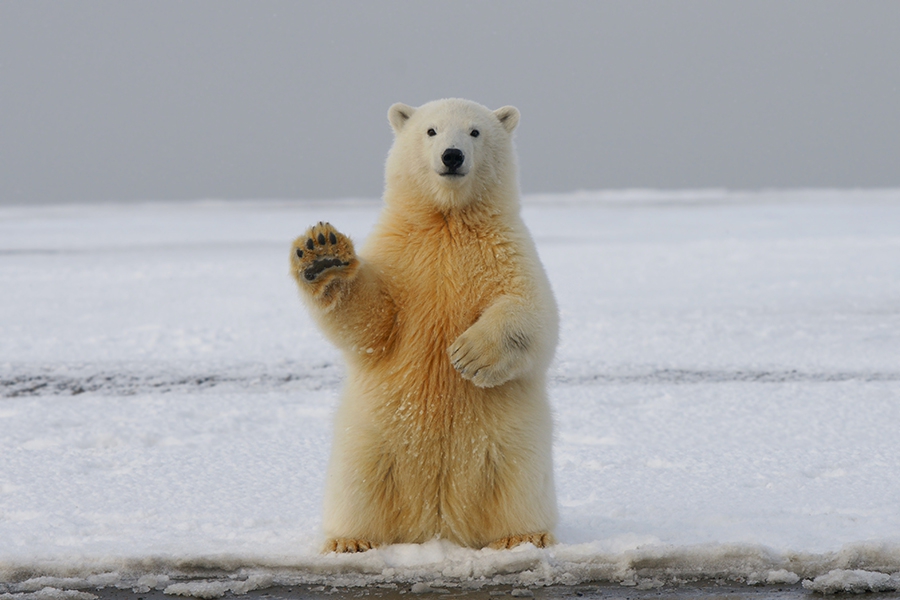
The Arctic's Big Five: Which animals can you see on an Arctic Expedition?
By mid-July, the Arctic region basks in 24-hour sunlight. This is the best time to visit the Polar region, as the western side of Svalbard sheds its icy sheath and flora paints Greenland’s canvas as a beautiful pasture of pastel colours. Glacial fronts start to loosen up, moving forward while colossal calvings crash into the sea.
All around the Arctic, eggs are hatching and chicks start earning their feathers. Cliffs are boisterous cities of squawking seabirds, waiting for elders to return with something to eat. Back on land, stealthy Arctic foxes in their mottled-brown summer coats are on the search for a meal with playful pups in tow. We can’t forget the polar bear, out of hibernation, using constant daylight to search for prey.
The Arctic is an icy playground for all sorts of beast, you're likely to bump into a few special friends on an Arctic Expedition Cruise.
1. Polar Bear
Ursus maritimus
“Sea Bear”
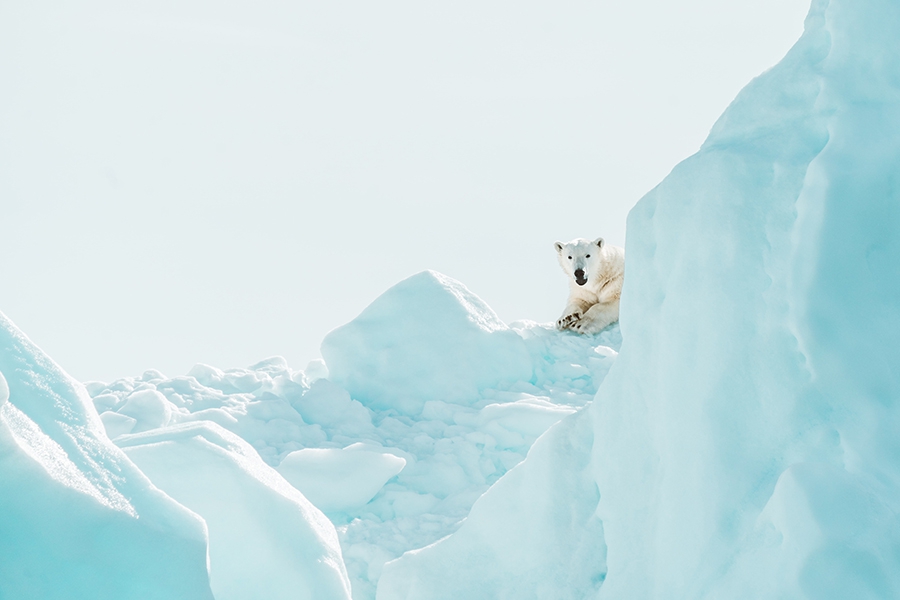
The polar bear is the King of the North, spending their days on the prowl for food – namely, the unfortunate ringed and bearded seals who cross their paths. Svalbard is generally regarded as the kingdom of the polar bear, and you can find them all year round.
Want to see a polar bear? Call 0161 516 7141 to find out more!
2. Arctic Fox
Vulpes lagopus
“Footed Rabbit”
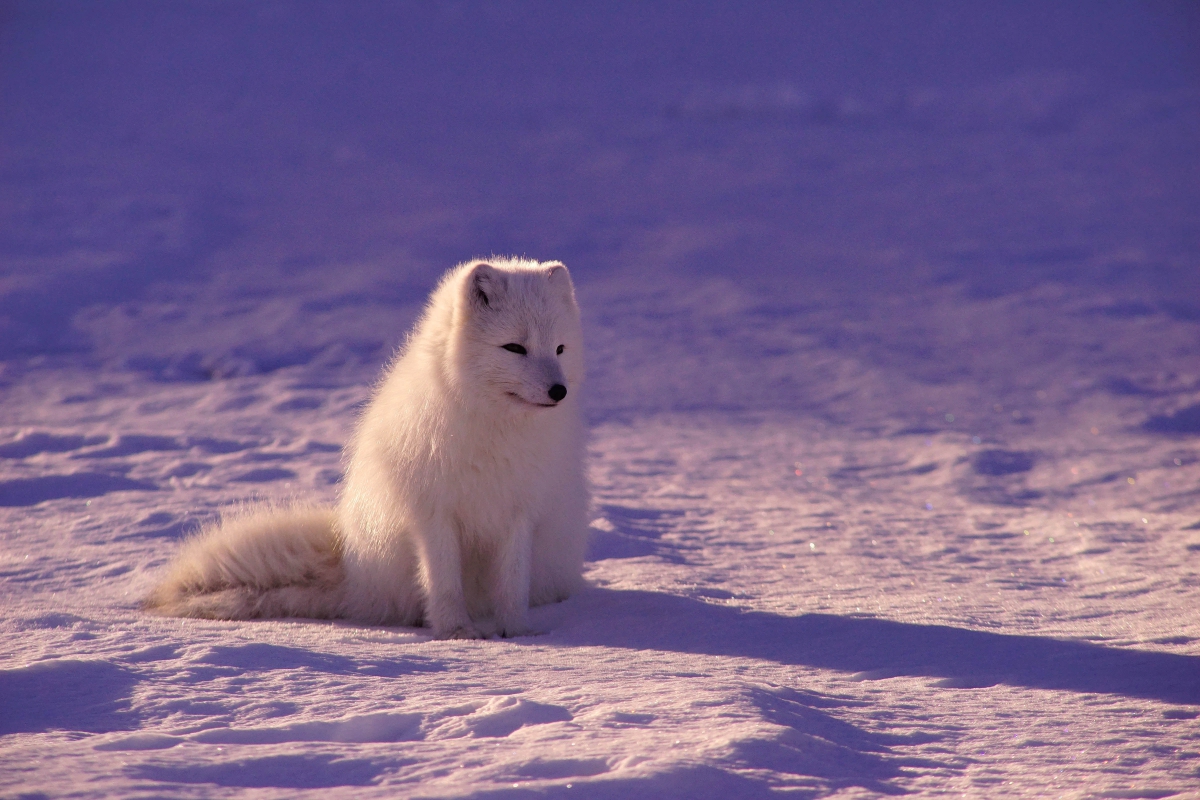
A thick, luscious coat, bushy tail, and puppy-like features make them one of the most adorable creatures in the region. While they look soft to pat, they are hardy mammals with a coat that helps keep them warm and camouflaged. They’re often found near polar bears from July to September.
Want to see an arctic fox? Call 0161 516 7141 to find out more!
3. Narwhal
Monodon monoceros
“One-tooth One-horn”
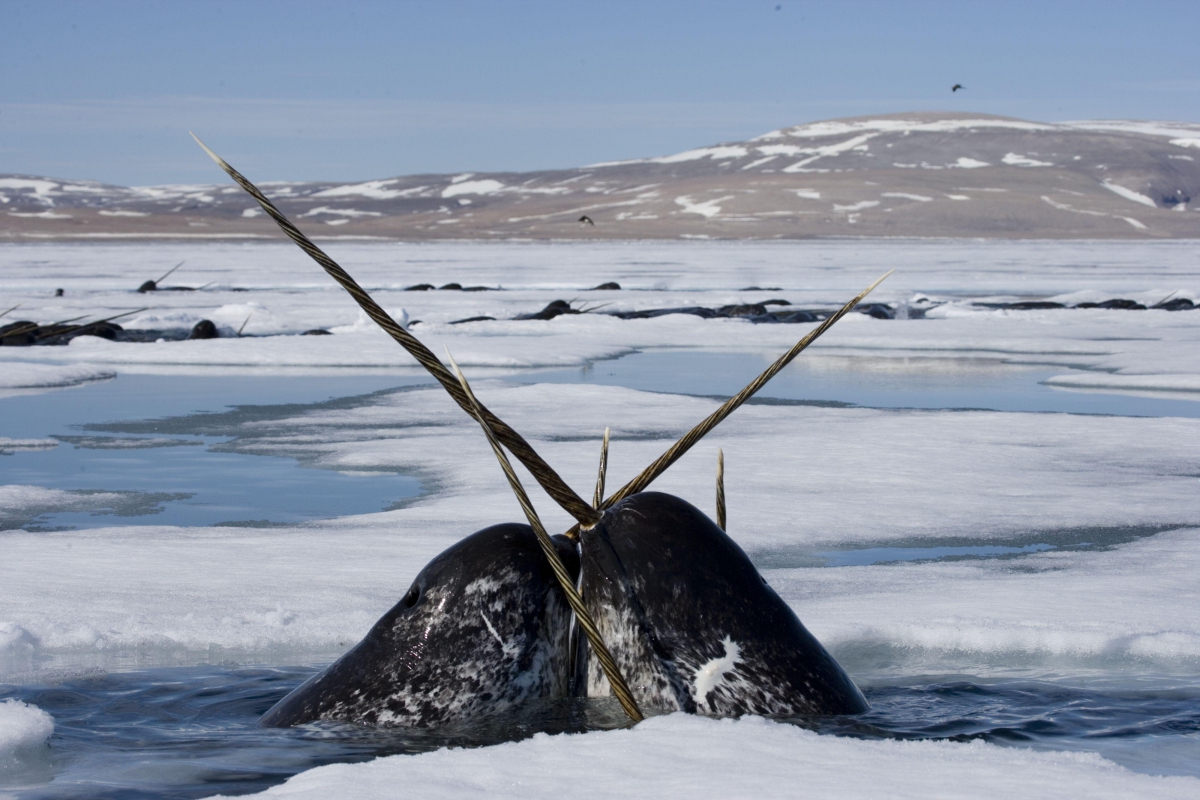
Narwhals are unicorns of the sea. Almost mythical tusks serve eating, mating, and navigation needs. This organ, actually a spiral tooth, has 10 million nerve endings and stuns the narwhal’s prey. The best chances of sighting a unicorn of the sea are on AE Expeditions’ Northwest Passage or Complete Northwest Passage tours from July to September.
Want to see a narwhal? Call 0161 516 7141 to find out more!
4. Beluga Whale
Delphinapterus leucas
“Dolphin Without a Fin”
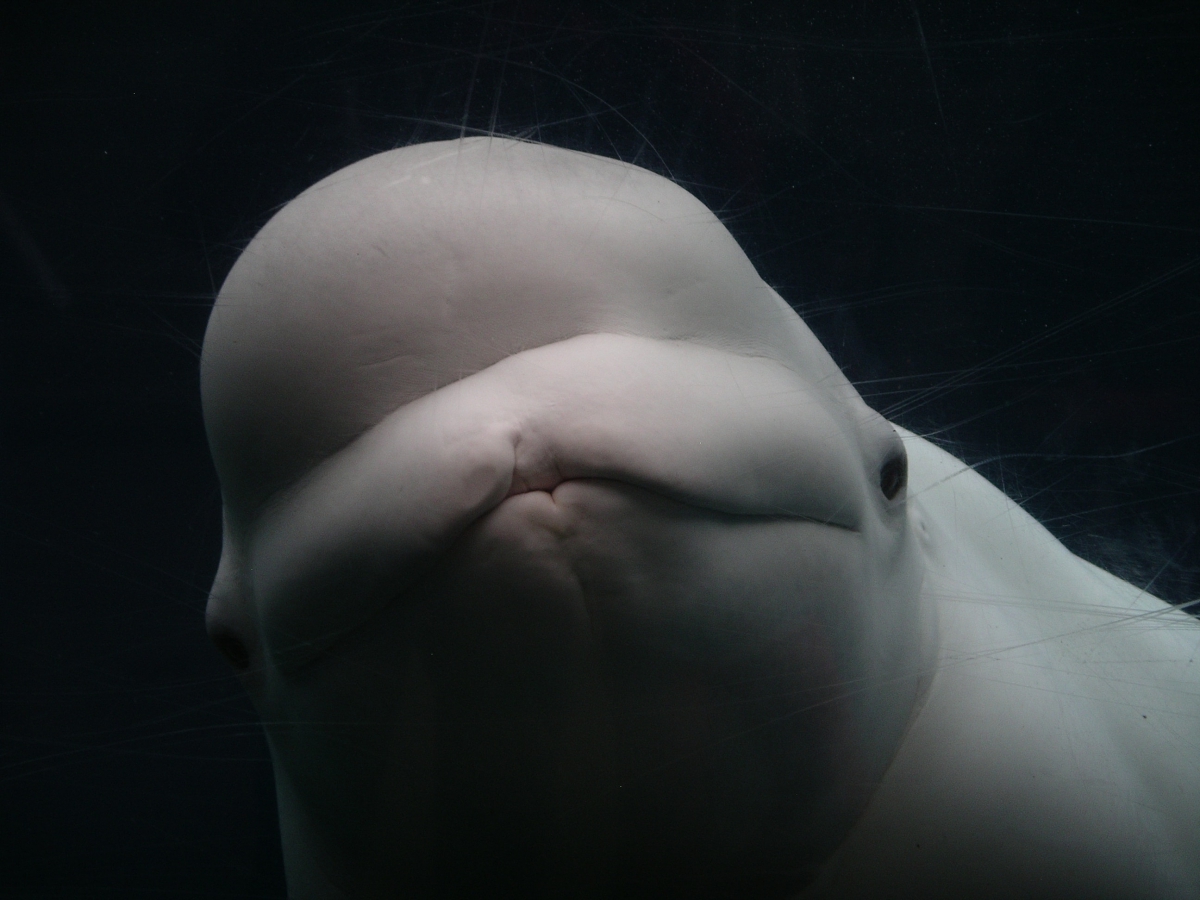
Beluga whales look happy with their beaked mouths stretching out to a smile. The noisiest whale in the ocean and easily-recognisable thanks to the stark white colouring on their big round heads. You can find them in Alaska, Canada, Greenland, and the Baltic Sea all year round. Bowheads, orcas, grey whales, humpbacks, pilots, and sperm whales are also present.
Want to see a beluga whale? Call 0161 516 7141 to find out more!
5. Musk Ox
Ovibos moschatu
“Musky Sheep Ox”
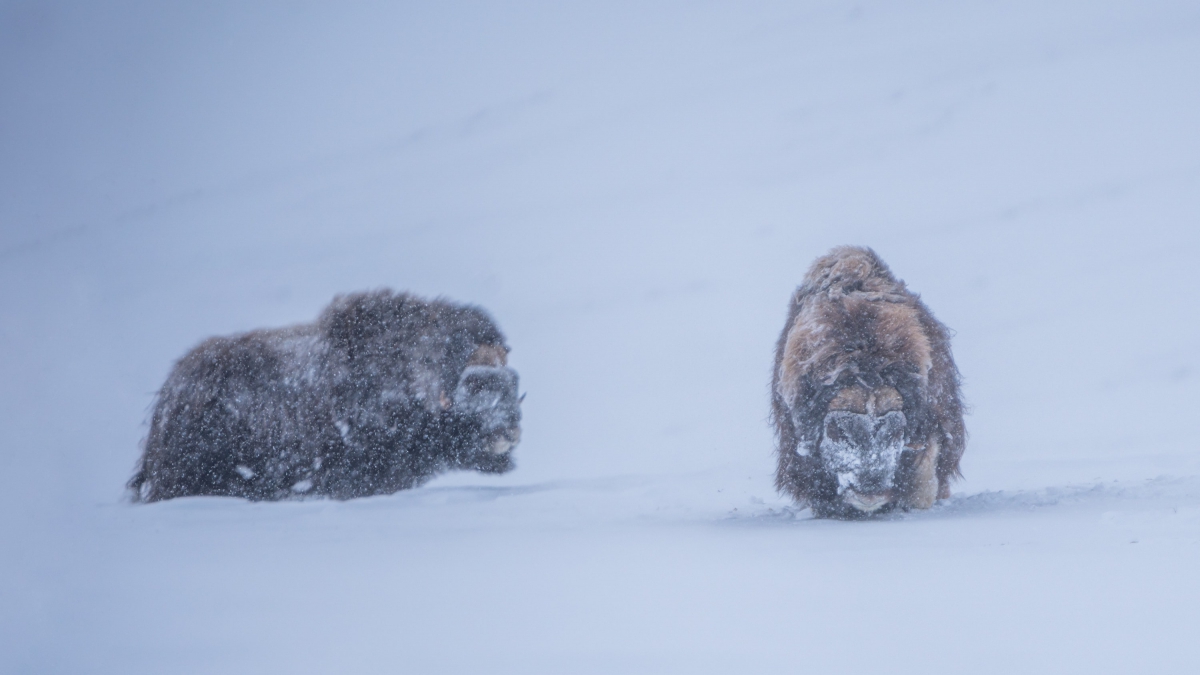
As indicated by the name, you can probably smell a musk ox before you can see it. Weighing up to 400 kg each, long, brown, shaggy coats protect these Arctic beasts from the unending cold. Muskoxen primarily live in Greenland, Alaska, Siberia, and Scandinavia.
Want to see a musk ox? Call 0161 516 7141 to find out more!
Call your dedicated cruise connoisseur on




